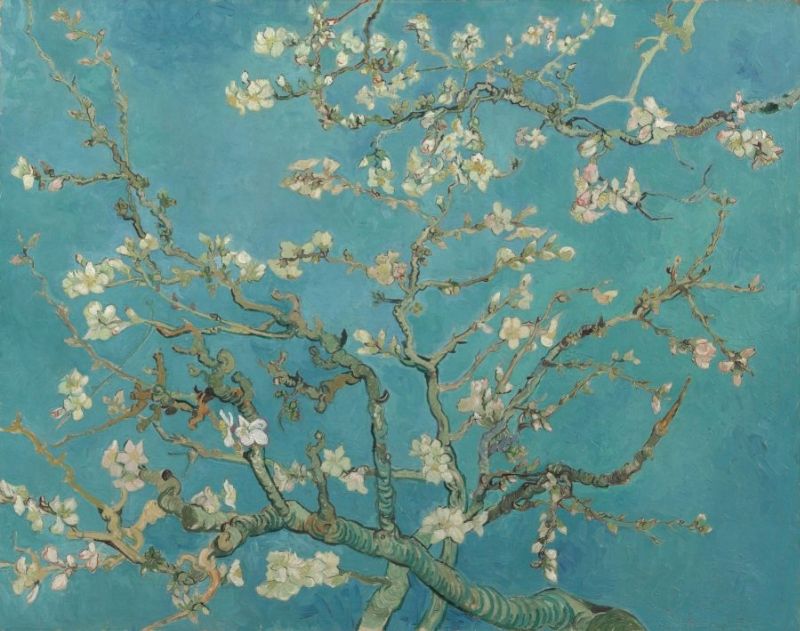The Role of Art

The Role of Art
On Friday I visited the Vincent van Gogh Museum in Amsterdam. I really enjoyed the exhibition. There were three images I enjoyed in particular. All three were about blossoming trees in the spring. The image above is called ‘Almond Blossom’. The painting was a gift for his brother Theo and sister-in-law Jo, who had just had a baby son, Vincent Willem. The other three paintings are part of one series (The White Orchard, The Pink Peach Tree and The Pink Orchard).
I was touched by the beauty of van Gogh’s paintings and drawings - and by the ones of the other artists they exhibit alongside – as well as by the stories that accompanies them. One question that has come up for me is: what role can art have in our systems work? I have come up with two possible answers so far, but I’m sure there are more.
Firstly, I think sharing the experience of engaging with art – in an exhibition, a performance, or any other setting – allows people to connect on a different level. If we only connect on a professional level during meetings or negotiations, we only experience a very narrow slither of a person, often not enough to truly connect as human beings. Talking about the experience of art gives us a much richer spectrum of possibilities to connect with and I would say we connect on a deeper, more human level. This can create conditions that allow for different relationships and, hence, different sorts of (new) collaborations.
Secondly, I think art allows us to move to a different level of abstraction. In my work, we are often stuck on a very concrete level of talking about transactions, products, business models, institutional services, etc. All of this is set in a context of clarity of what leads to what and what needs to change in order to get what outcome. Yet the systems we work in are not causal, they are dispositional. Art often does not have an intended outcome or effect – or that originally intended outcome or effect might not be relevant to people anymore (like for example the intention of von Gogh’s painting ‘The Potato Eaters‘ was to impress the art scene in Paris before he would be arriving there – this is not relevant anymore yet the piece of art is still inspiring.) So we can experience something that has no intended outcome and the very act of experiencing this together has no intended outcome – and yet most likely it does have an effect on people to experience such things together.
What do you think could be the role of art in systems work? Do you agree with my two points above? What would you add? Just reply to this email with your thoughts.
The Paper Museum
A little section from the novel I’m currently reading, Isaac Asimov’s “Prelude to Foundation”, where Hari Seldon and Dors Venabili are navigating through Mycogen, a rather backwards sector of the planet Trantor.
She [Dors] said, ‘We can easily get lost, you know.’
‘Not with that booklet,’ said Seldon.
She looked up impatiently. ‘Fix your mind on Mycogen, Hari. What I should have is a computo-map, something I can ask questions of. This Mycogenian version is just a piece of folded plastic. I can’t tell this thing where I am. I can’t tell it by word of mouth, and I can’t even tell it by pushing the necessary contacts. It can’t tell me anything either way. It’s a print thing.’
I thought it was funny that Asimov already in 1988 when the book was published predicted that there would be a time when people couldn’t read printed maps anymore and only relied on computer maps that told them where they are at that moment and where how hey could get to where they wanted to go. One prediction that certainly has come true.
More for you to enjoy
I really enjoyed listening to Philip’s book ‘Radical Wholeness‘ this year and it and the workshop shifted my own understanding of what embodiment means. Last week, I joined a two-day Radical Wholeness Workshop with Philip Shepherd. That’s also the reason why you only get this email in your inbox on Sunday as on my way back to the UK from the workshop my travel plans were thrown around by Storm Arwen so I did not get to write.